



If you ever find yourself wandering through Mataram,you’ll immediately notice a rhythm that’s both lively and laid-back—a city where tradition and everyday life blend effortlessly. The streets buzz with the chatter of locals bargaining at the markets,the scent of sizzling satay mingling with fresh tropical fruits,and the occasional call to prayer weaving through the air. It’s a place where the warmth of the people matches the tropical sun,making you feel instantly welcome. Walking around,you’ll catch glimpses of vibrant Sasak culture everywhere—from the intricate woven textiles displayed in small shops to the traditional music drifting from community gatherings. The city isn’t just a gateway to Lombok’s natural wonders; it’s a cultural heartbeat,alive with festivals,local crafts,and stories told over cups of strong,sweet coffee. The architecture is a charming mix of old and new,with humble wooden houses standing alongside bustling street stalls and modern cafes. What I love most about Mataram is how it invites you to slow down and savor the moment. Whether you’re sipping a fresh coconut by the beach or exploring the lively night markets,there’s a genuine sense of connection here—between people,place,and tradition. It’s not just a stop on your trip; it’s a place that stays with you,long after you’ve left.
The information on this page is currently being reviewed by Tripkliq and should be used as a guide only
Eng word: Hello
Eng pronunciation: Ha-lo
Local language: Halo
Eng word: Goodbye
Eng pronunciation: Se-la-mat ting-gal
Local language: Selamat tinggal
Eng word: Thank you
Eng pronunciation: Te-ri-ma ka-sih
Local language: Terima kasih
Eng word: How much
Eng pronunciation: Be-ra-pa
Local language: Berapa
Eng word: Toilet
Eng pronunciation: Toi-let
Local language: Toilet
Eng word: Help me
Eng pronunciation: To-long sa-ya
Local language: Tolong saya
Eng word: Yes
Eng pronunciation: Ya
Local language: Ya
Eng word: No
Eng pronunciation: Ti-dak
Local language: Tidak
Eng word: Excuse me
Eng pronunciation: Per-mi-si
Local language: Permisi
Mataram, the capital city of West Nusa Tenggara, Indonesia, has a rich history dating back to its establishment. It has been an important center in Lombok since the 17th century.
Mataram has historically been a melting pot of cultures, incorporating Sasak, Balinese, and Dutch influences, among others, due to various periods of migration and colonization.
Constructed in 1744, the Mayura Water Palace is a significant historical site in Mataram, originally built by the Balinese kingdom as a place of worship and a judicial court.
Pura Meru, the largest temple in Lombok, was built in 1720 by King Anak Agung Made Karang of Mataram. It is dedicated to the Hindu trinity of Brahma, Vishnu, and Shiva.
The Lingsar Temple complex, dating back to 1714, is a symbol of unity and tolerance in Mataram, being a place of worship for both Hindus and Muslims.
Mataram experienced significant development during the Dutch colonial period, including the introduction of administrative and infrastructure improvements.
As the heart of Lombok, Mataram is considered the epicenter of Sasak culture, showcasing traditional arts, crafts, and architecture unique to the indigenous Sasak people.
In recent decades, Mataram has undergone extensive modernization, evolving into a bustling city with a mix of traditional and modern architecture, while still preserving its historical sites.
Constructed in 1727, Taman Narmada serves as a miniature representation of Mount Rinjani and its crater lake. This historical park was used by the Balinese royalty for recreation and religious ceremonies.
In Mataram, the most common Power Adaptor is Type C, Type F.


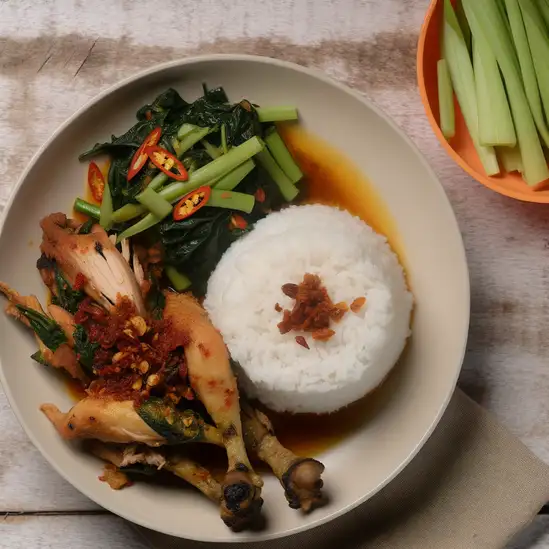
A spicy grilled chicken dish marinated with a blend of spices, often served with rice and a side of plecing kangkung (water spinach salad).
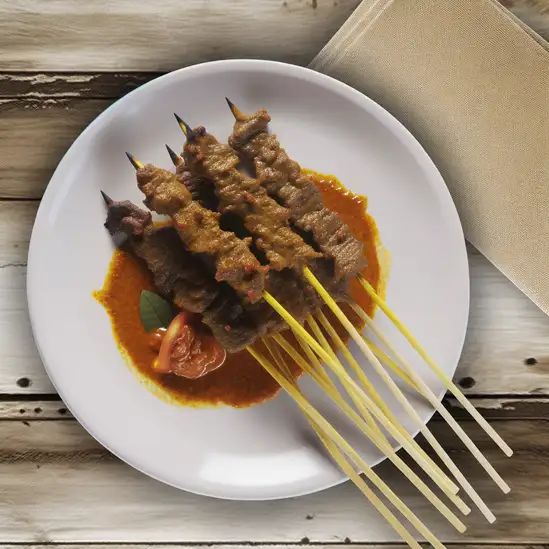
Skewered and grilled beef satay, marinated in a rich blend of spices, typically served with a spicy peanut sauce.
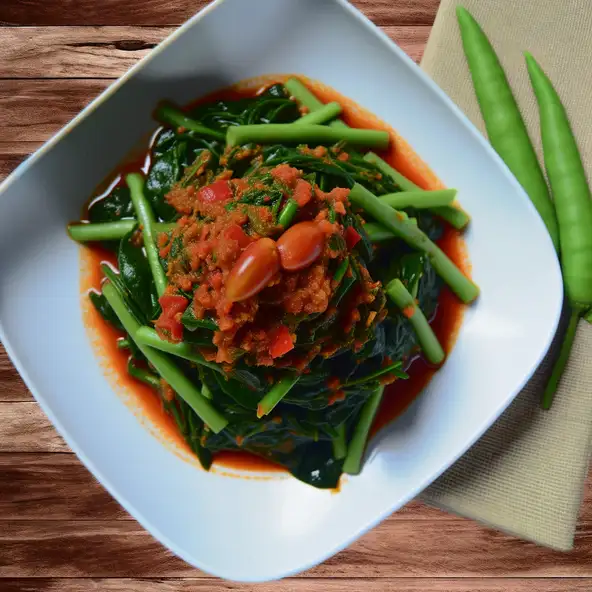
A refreshing salad made from blanched water spinach, topped with a spicy sambal made from chili, tomato, and shrimp paste.
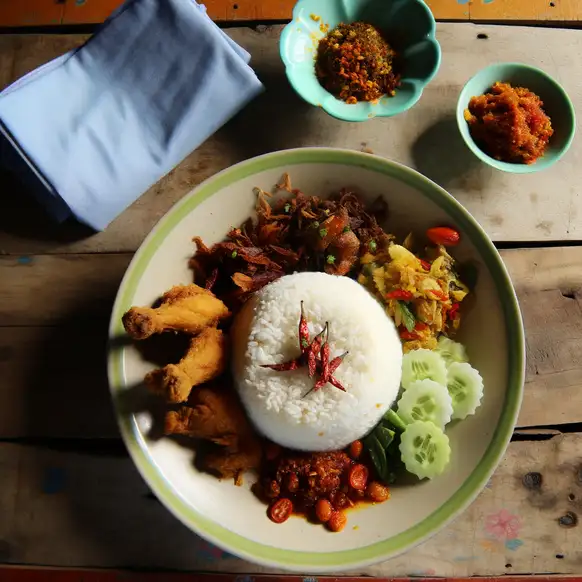
A traditional Lombok dish consisting of rice served with a variety of side dishes, including fried chicken, sambal, and vegetables.
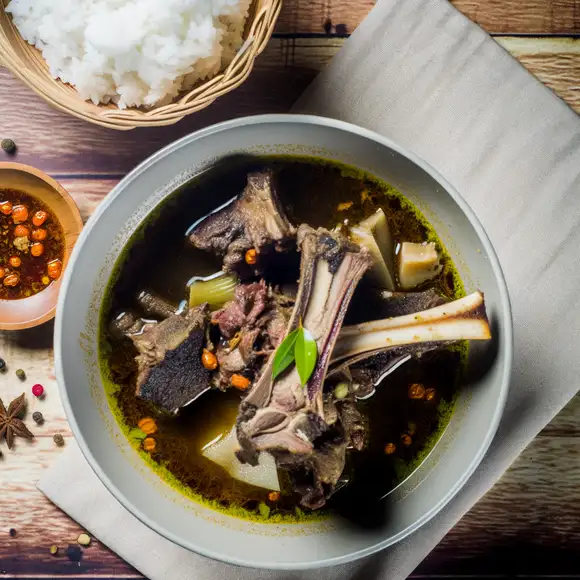
A traditional beef rib soup cooked with a variety of spices, often enjoyed with rice and sambal.
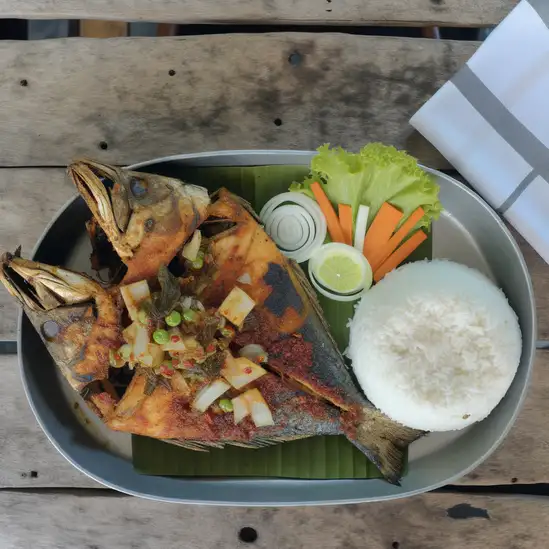
Grilled fish seasoned with a spicy marinade, typically served with rice and a side of fresh vegetables.
If you find yourself wandering through Kota Denpasar,you’ll immediately notice its lively heartbeat—a city that hums with everyday life yet carries a deep cultural rhythm beneath the surface. It’s not the polished tourist hub like southern Bali,but that’s exactly what makes it so captivating. The streets buzz with scooters weaving through markets where the scent of fresh spices mingles with the earthy aroma of tropical fruits. Vendors call out in warm,melodic tones,inviting you to taste something new or simply share a smile.
Denpasar feels like the authentic soul of Bali,where tradition and modern life dance side by side. You’ll see women in vibrant kebayas carrying offerings to temples,while nearby,young artists sketch murals that splash color onto old walls. The city’s pulse is both chaotic and comforting,with the clatter of street food stalls serving up fragrant nasi campur and the gentle chime of temple bells weaving through the air.
What’s truly special is how Denpasar invites you to slow down and soak in its layers—whether it’s the warmth of a local’s greeting,the taste of freshly brewed Balinese coffee,or the sight of intricate carvings on ancient temples tucked between bustling streets. It’s a place where you don’t just visit; you become part of the daily story,feeling the city’s spirit in every step you take.
Labuan Bajo feels like stepping into a vibrant postcard where the sea meets rugged hills,and every sunset paints the sky in fiery oranges and pinks. When you arrive,there’s this laid-back energy that wraps around you—locals chatting over fresh fish markets,the salty breeze mingling with the scent of tropical flowers,and boats bobbing gently in the harbor. It’s a place where time slows down just enough for you to soak in the simple beauty of island life.
Walking through the town,you’ll hear the lively chatter of fishermen,the clinking of glasses at cozy beachfront cafes,and the distant call of exotic birds. The streets are dotted with colorful warungs serving up spicy sambal and freshly grilled seafood that tastes like it was caught just moments ago. There’s a warmth in the smiles of the people here,a genuine friendliness that makes you feel instantly welcome.
What really sets Labuan Bajo apart is its gateway to the Komodo National Park. Beyond the town’s charm,you can dive into crystal-clear waters teeming with vibrant coral reefs or trek through dry savannahs to spot the legendary Komodo dragons. It’s a place where adventure and tranquility coexist,where you can lose yourself in nature’s wonders and then return to a hammock overlooking the calm sea,feeling utterly content. Trust me,Labuan Bajo isn’t just a destination—it’s an experience that stays with you long after you leave.
If you ever find yourself craving a place where the ocean breeze carries the scent of sizzling street food and the hum of lively markets fills the air,Makassar should be at the top of your list. This city pulses with a laid-back energy that feels both vibrant and welcoming,like a friend inviting you to slow down and savor the moment. Walking along the waterfront,you’ll catch glimpses of traditional wooden phinisi boats bobbing gently,their sails catching the golden light of sunset,while fishermen call out to one another in a melodic rhythm that feels timeless.
Makassar’s streets are a feast for the senses. The aroma of grilled seafood—freshly caught and seasoned with local spices—wafts from warungs lining the alleys,tempting you to try coto Makassar,a rich,aromatic beef soup that locals swear by. The city’s mix of Bugis and Makassarese cultures shines through in its colorful markets,where vibrant textiles,handcrafted jewelry,and lively banter create a tapestry of daily life that’s both authentic and inviting.
What really makes Makassar stand out is its blend of old and new. You can explore centuries-old forts and mosques,then hop over to a bustling café where young creatives gather,blending tradition with modern flair. It’s a place where every corner tells a story,and every meal feels like a celebration. Trust me,Makassar isn’t just a stopover—it’s a place that stays with you long after you’ve left.
Surabaya pulses with an energy that’s both vibrant and welcoming,a city where history and modern life dance side by side. As you wander through its bustling streets,you’ll catch the scent of sizzling satay mingling with the salty breeze from the nearby harbor. The city hums with the chatter of locals bargaining in lively markets,the clatter of motorbikes weaving through traffic,and the distant call of street vendors selling fresh tropical fruits. It’s a place where every corner tells a story—from colonial-era buildings standing proudly alongside sleek skyscrapers to colorful murals that splash life onto old walls.
What really makes Surabaya special is its character:tough yet warm,a city that’s seen its share of history but never lost its heart. The people here are fiercely proud and incredibly friendly,always ready to share a smile or a recommendation for the best local warung. Dive into the food scene and you’ll find yourself savoring rich,spicy flavors—like the famous rawon,a dark beef soup that’s both comforting and bold,or the sweet,sticky lontong balap that fills the air with fragrant spices.
Evenings in Surabaya have their own magic. The city lights flicker on,and the streets fill with the sounds of gamelan music drifting from cultural performances or the laughter spilling out of cozy cafes. Whether you’re exploring the historic old town or simply sipping kopi on a street corner,Surabaya invites you to slow down,soak in its layers,and feel the heartbeat of a city that’s alive in every sense.
Manado has this incredible energy that feels both laid-back and vibrant at the same time. Imagine waking up to the gentle hum of the sea mingling with the chatter of locals starting their day,the air thick with the scent of fresh spices and tropical fruits. The city’s coastline stretches wide,where colorful fishing boats bob gently in the harbor,and the nearby mountains stand like silent guardians,lush and inviting. Walking through the streets,you’ll catch the lively mix of Minahasan culture—bright sarongs,warm smiles,and the rhythmic beat of traditional music spilling from open windows.
What really makes Manado unforgettable is its food scene. You can’t leave without trying the rich,spicy flavors of rica-rica or the fresh,tangy taste of cakalang fufu (smoked skipjack tuna). Street vendors and family-run warungs serve up dishes that feel like a warm hug,each bite telling a story of the sea and the land. And if you’re into diving or snorkeling,the nearby Bunaken National Marine Park is a dazzling underwater world bursting with vibrant coral and curious sea turtles.
But beyond the sights and tastes,it’s the people who make Manado special. They’re genuinely welcoming,eager to share their traditions and stories,making you feel like you’re part of the community rather than just a visitor. Whether you’re sipping kopi in a bustling café or watching the sunset paint the sky over the bay,Manado leaves you with a sense of belonging and a craving to come back.
If you find yourself wandering through Kota Administrasi Jakarta Pusat,you’ll immediately notice the pulse of a city that’s both historic and buzzing with modern energy. It’s a place where colonial-era buildings stand shoulder to shoulder with sleek skyscrapers,creating a fascinating blend of old and new. Walking down the streets,you can almost hear the echoes of history mingling with the chatter of office workers and street vendors. The air carries a mix of aromas—from the rich,spicy scent of street food stalls grilling satay to the faint,comforting smell of freshly brewed kopi from tiny warungs tucked in corners.
What really makes Jakarta Pusat special is its vibrant character. It’s the heart of the city’s administrative and cultural life,so you’ll find a lively mix of people—government officials,artists,students,and families—all weaving their stories into the urban fabric. The bustling markets,like Pasar Baru,invite you to haggle over colorful textiles and local snacks,while nearby museums and galleries offer a quiet retreat into Indonesia’s rich heritage.
There’s a rhythm here that’s both fast-paced and inviting. Whether you’re sipping a sweet es cendol under the shade of a tree in Merdeka Square or catching the golden light reflecting off the National Monument at dusk,Jakarta Pusat feels alive in a way that’s deeply human and endlessly fascinating. It’s a city that invites you to slow down,look around,and soak in the layers of life unfolding all at once.
Tourists are tricked into paying for non-existent or substandard accommodations through fake online listings.
Operators of water sports or beach activities may demand extra fees after the activity, claiming hidden costs or additional charges.
Money changers may use sleight of hand or miscount money to shortchange tourists during currency exchanges.
Scammers impersonate police officers and accuse tourists of minor infractions, demanding bribes to avoid 'legal trouble.'
Scammers sell fake tickets to popular tourist attractions or events, leaving tourists unable to enter after paying.
Unlicensed individuals pose as tour guides and charge high fees for subpar or incomplete services.
Tourists are accused of damaging rented motorbikes, even if the damage was pre-existing, and are forced to pay inflated repair fees.
Vendors may charge tourists significantly higher prices for souvenirs, especially in areas with no visible price tags.
Drivers of taxis or private cars may overcharge tourists, especially if no price is agreed upon beforehand or the meter is not used.
Tourists are targeted in crowded areas or on motorbikes, with thieves snatching bags or valuables.
Indonesia has some of the strictest drug laws in the world, and Mataram is no exception. The possession, use, or trafficking of illegal drugs can result in severe penalties, including long prison sentences, heavy fines, or even the death penalty for certain offenses. Tourists should avoid any involvement with drugs, including marijuana, which is illegal despite its legalization in some other countries. Prescription medications should be carried with a doctor's note or prescription to avoid misunderstandings with authorities.
In Mataram, Indonesia, smoking is regulated under national and local laws. Smoking is prohibited in public places such as schools, hospitals, places of worship, public transportation, and government buildings. Designated smoking areas may be available in some locations, but tourists should look for signage or ask locals to confirm. Violations can result in fines. Additionally, Indonesia has strict regulations on cigarette advertising and packaging, but smoking is still culturally prevalent in some areas.
Vaping is less regulated than smoking in Indonesia, including in Mataram, but it is still subject to restrictions in public spaces. Tourists should avoid vaping in non-smoking areas or enclosed public spaces to avoid fines or confrontations. While vaping is not as culturally widespread as smoking, it is becoming more common, and some establishments may have specific rules regarding its use. Always check for signage or ask for permission before vaping.
What are other people saying about Mataram?
Recent Social posts about Mataram
There is nothing to show you for now.